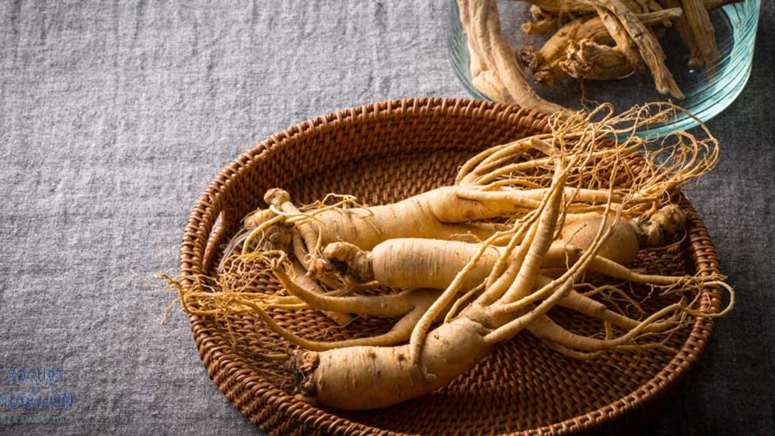Ginseng has been in existence for a long period of human existence and has been used in traditional Chinese medicine for centuries. This plant is known to have a slow growth rate and is a short plant with fleshy roots. This herb can be classified in three ways, depending on how long it is cultivated: fresh, white, or red.
Fresh ginseng is harvested before four years, while white ginseng is harvested between 4 to 6 years, and red ginseng is harvested after six or more years. Out of various types of this herb, the most popular are the American and Asian. American and Asian ginseng has been shown to improve pancreatic cell function [1], boost insulin production and enhance the uptake of blood sugar in tissues.
You can enjoy the deliciousness of ginseng roots in various ways [2]. It can be eaten raw, or it can be steamed lightly to soften it. It can also be soaked and boiled in water to make tea.
This herb can be added to various recipes like soups. Its extract can be found in powder, tablet, capsule, and oil forms. The recommended amount depends on the illness you’re treating.
Here are some evidence-based health benefits [3] of herbal plant:
Reduces Inflammation and Increases Energy Levels

It has been proved that ginseng help reduces inflammatory markers and also helps protect against oxidative stress. This herb has beneficial antioxidant and anti-inflammatory properties. Red ginseng may help reduce oxidative stress by increasing antioxidant enzyme activities.
This herbal plant has been shown to help fight fatigue and promote energy. It has also been associated with lower oxidative stress and higher energy production in cells, which could help fight fatigue. Ginseng may help fight fatigue and enhance physical activity by lowering oxidative damage and increasing energy production in cells.













